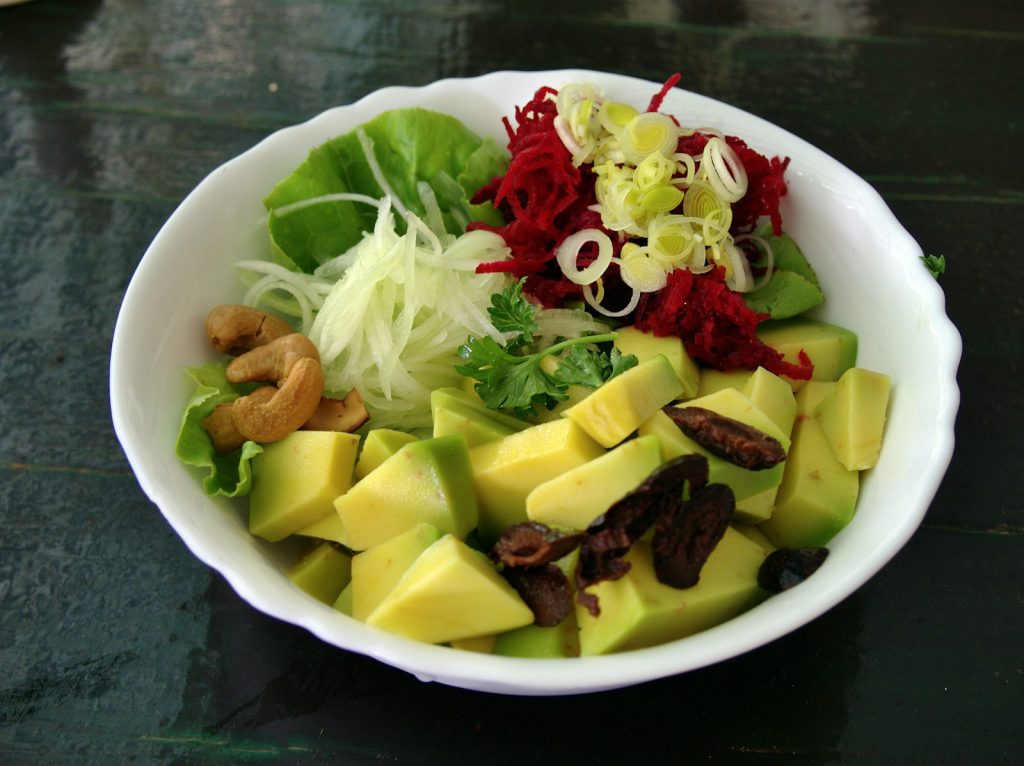Is Following a Raw Food Diet Good for You?

In recent years, the raw food diet has gained popularity as a health trend, with advocates claiming that it can boost energy levels, promote weight loss, and improve overall well-being. The diet consists primarily of raw, unprocessed, and plant-based foods such as fruits, vegetables, nuts, seeds, and sprouted grains. The central philosophy of this diet is that cooking food above a certain temperature (typically between 104°F and 118°F) destroys essential nutrients and enzymes that are beneficial to health. Proponents of the raw food diet argue that eating foods in their natural, uncooked state preserves these nutrients, leading to better digestion, higher energy levels, and a reduced risk of chronic diseases.
While the raw food diet certainly promotes the consumption of nutrient-rich, whole foods, there are questions about whether it provides all the necessary nutrients the body needs to function optimally, and whether the potential benefits outweigh the risks. In this article, we’ll explore the pros and cons of following a raw food diet, the scientific evidence behind its claims, and whether it is truly a healthy option for long-term wellness.
What is a Raw Food Diet?
The raw food diet consists mainly of uncooked and unprocessed foods. The majority of these foods are plant-based, including fruits, vegetables, nuts, seeds, sprouted grains, and legumes. Some raw food diets may also include raw dairy products, raw eggs, and certain types of raw fish or meat, though these are less common. Foods that are part of the raw food diet are typically eaten fresh, dehydrated at low temperatures, or juiced. Cooking methods like boiling, steaming, frying, or baking are strictly avoided, as they are believed to destroy important enzymes and nutrients in food.
The Principles Behind the Raw Food Diet
The raw food diet is based on the idea that raw foods retain their natural enzymes, which are believed to aid in digestion and promote better absorption of nutrients. Advocates of this diet argue that these enzymes are destroyed when food is heated above 104°F–118°F, rendering the food less nutritious and harder to digest. By consuming raw foods, they believe that the body can more easily digest and process the nutrients, leading to better health outcomes.
In addition to preserving enzymes, raw foodists believe that eating uncooked foods reduces the risk of exposure to harmful substances produced during cooking, such as advanced glycation end-products (AGEs) and heterocyclic amines (HCAs), which are formed when meats are grilled or fried at high temperatures. These compounds have been linked to inflammation and chronic diseases like cancer and heart disease, making a raw diet seem appealing from a health perspective.
Potential Benefits of a Raw Food Diet
1. Rich in Nutrients and Antioxidants
One of the key benefits of following a raw food diet is its focus on whole, plant-based foods that are packed with essential vitamins, minerals, and antioxidants. Raw fruits and vegetables are naturally high in fiber, vitamins C and E, folate, and potassium, which support various aspects of health, from immune function to heart health. The abundance of antioxidants in raw plant foods helps protect the body from oxidative stress, a process linked to aging and chronic diseases like cancer and heart disease.
Since the diet emphasizes fresh, natural ingredients, it tends to be low in sodium, refined sugars, and saturated fats, making it an excellent option for those looking to lower blood pressure, manage cholesterol levels, or reduce the risk of cardiovascular diseases. The high nutrient density of raw foods can also contribute to increased energy levels and a greater sense of overall well-being.
2. Supports Weight Loss
The raw food diet is naturally low in calories because it is based on fruits, vegetables, and plant-based foods that are high in water content and fiber but low in energy density. This means that you can consume larger quantities of these foods without consuming too many calories, which can help with weight loss. The high fiber content in raw foods also promotes feelings of fullness and satiety, reducing the likelihood of overeating.
In addition to its low-calorie nature, the raw food diet eliminates processed foods, which are often high in empty calories, unhealthy fats, and added sugars. By cutting out processed snacks, fast food, and sugary beverages, people on a raw food diet can reduce their overall calorie intake while still enjoying nutrient-dense, whole foods.
3. Improves Digestion
A major focus of the raw food diet is the consumption of foods that are naturally high in digestive enzymes. These enzymes, which are found in raw fruits and vegetables, are believed to aid in the breakdown of food and improve nutrient absorption. Proponents of the raw food diet claim that cooking food destroys these enzymes, making digestion more difficult and putting extra strain on the body’s own enzyme production.
Furthermore, raw foods are typically rich in fiber, which promotes healthy digestion by supporting regular bowel movements and preventing constipation. Fiber also feeds the beneficial bacteria in the gut, contributing to a balanced microbiome, which plays a key role in overall health and immune function.
4. Reduces Inflammation
Many of the foods included in a raw food diet are rich in anti-inflammatory compounds, such as polyphenols, flavonoids, and omega-3 fatty acids, which help reduce inflammation in the body. Chronic inflammation is a significant contributor to many health conditions, including heart disease, diabetes, and certain cancers. By focusing on raw plant-based foods, which are naturally low in inflammatory triggers like processed sugars and trans fats, the diet may help reduce inflammation and promote better health outcomes.
Potential Downsides of a Raw Food Diet
1. Risk of Nutrient Deficiencies
While the raw food diet emphasizes nutrient-rich foods, it can also be lacking in certain essential nutrients that are difficult to obtain from a plant-based, uncooked diet. Some nutrients, such as vitamin B12, iron, calcium, vitamin D, and omega-3 fatty acids, are found predominantly in animal products or fortified foods, which are often excluded from a raw diet. Long-term deficiencies in these nutrients can lead to issues such as anemia, weakened bones, fatigue, and poor immune function.
For example, vitamin B12, which is crucial for nerve function and the production of red blood cells, is primarily found in animal products. While some raw foodists may incorporate raw dairy or eggs, many avoid these sources, putting them at risk for B12 deficiency. Similarly, calcium and vitamin D, which are vital for bone health, can be challenging to get in sufficient amounts from a raw diet, especially if fortified foods like plant milks are not included.
2. Difficulty Meeting Protein Needs
A raw food diet can make it challenging to meet daily protein requirements, especially for individuals who are more active or who have higher protein needs due to their lifestyle or health conditions. While some plant-based protein sources, such as nuts, seeds, and legumes, are included in the diet, they may not be consumed in sufficient quantities to provide adequate protein.
Cooking also makes certain foods, like beans and legumes, easier to digest and more bioavailable. Without cooking, many raw food enthusiasts rely on sprouting or soaking these foods, but even then, protein absorption can be lower compared to cooked versions. For those who rely on raw plant-based sources of protein, balancing the diet to ensure adequate intake can be difficult.
3. Digestive Issues from Excessive Fiber
While fiber is a crucial nutrient for digestion, consuming too much of it—especially from raw vegetables and fruits—can lead to digestive discomfort. People on a raw food diet may experience bloating, gas, or stomach cramps due to the high fiber content and the difficulty some people have in digesting large amounts of raw food. Cooking helps break down the fiber in food, making it easier to digest, which is why some people may struggle with raw food digestion.
In addition, raw vegetables like cruciferous vegetables (broccoli, cabbage, and kale) contain compounds that can be harder to break down and may cause digestive upset when eaten in large amounts. For individuals with sensitive digestive systems, transitioning to a raw food diet too quickly may exacerbate these issues.
4. Limited Variety and Social Challenges
Following a strict raw food diet can be restrictive, limiting the variety of foods that can be consumed. This restriction can make it difficult to maintain the diet long-term and may lead to feelings of deprivation. Many people find that the social aspects of eating—such as dining out or enjoying meals with family and friends—become challenging when following a raw food diet, as most restaurants do not cater to this specific way of eating.
The difficulty in finding satisfying meals that adhere to the raw food philosophy can make it hard to sustain the diet, especially over the long term. This can also lead to nutritional gaps if a person becomes bored or fatigued with the limited food options available.
Is a Raw Food Diet Sustainable Long-Term?
While the raw food diet has notable health benefits, particularly due to its focus on whole, plant-based foods, it may not be sustainable for everyone in the long term. The restrictive nature of the diet and the potential for nutrient deficiencies pose significant challenges, especially for those who follow a raw diet exclusively. Individuals who adopt a raw food diet may need to carefully plan their meals to ensure they are meeting all their nutritional needs, including through supplementation when necessary.
For those who want to reap the benefits of raw foods without committing to a fully raw diet, a more balanced approach that includes both raw and cooked foods may be a better option. Cooking certain vegetables, grains, and proteins can actually make their nutrients more bioavailable and easier to digest, providing a broader range of nutrients. Incorporating raw foods into a varied, whole-foods-based diet allows for flexibility while still emphasizing the consumption of nutrient-dense, minimally processed foods.
The raw food diet offers several potential health benefits, particularly due to its emphasis on whole, plant-based foods that are rich in vitamins, minerals, and antioxidants. For individuals looking to improve their digestion, reduce inflammation, and support weight loss, the raw food diet can be a valuable tool. However, the restrictive nature of the diet, along with the potential for nutrient deficiencies and digestive discomfort, may make it difficult to sustain long-term.
A more balanced approach that incorporates a variety of raw and cooked foods can provide a more sustainable and nutritious way to enjoy the benefits of a plant-based diet while avoiding the potential downsides of an all-raw regimen. Ultimately, whether a raw food diet is right for you depends on your individual nutritional needs, lifestyle, and health goals. If you are considering adopting a raw food diet, it is important to consult with a healthcare provider or nutritionist to ensure that your diet is balanced and supports your overall well-being.


